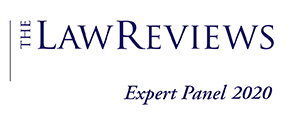In the past few years, the Russian government has taken various measures to reduce adverse consequences of sanctions introduced by the United States, EU and certain other countries and to encourage foreigners to invest in Russia. The measures included major reform of corporate law, simplification of the regulatory framework, subsidies and guarantees, as well as various tax incentives; for example, in relation to industrial R&D, tourism and operation of ports. As of the end of the first six-month period in 2019, direct inward investment into Russia was US$472 million, slightly exceeding investment in the first six months of 2018. This is a relatively small amount, standing at a par with inbound investments in Belgium. The Organisation for Economic Co-operation and Development (OECD) forecasts the growth of the Russian economy to continue at a very moderate pace.
Tax incentives have been neutralised by a gradual overall increase in the tax burden, including an increase in the value added tax (VAT) rate (as of 1 January 2019) and introduction of various quasi-taxes.
Although the role of the state in the Russian economy has been growing constantly, certain mega projects have been completed by private investors. For instance, Yamal LNG, a company majority owned by Novatek (Russia), with Total (France), CNPC and Silk Road Fund (China) as private investors, completed the LNG project well ahead of the plan. Major tax and customs concessions were secured through amendments to Russian law and an intergovernmental agreement was concluded by Russia and China. In the summer of 2019, the Arctic LNG 2 project majority owned by Novatek attracted investment from Total, CNPC, CNOOC (China), and the consortium of Mitsui and JOGMEC (Japan). The final investment decision on the project was made in September 2019.
The valuation of Russian companies remains low, making them an attractive target for investors willing to take on the risk in the current economic and political environment.
At the same time, Russia has been exercising control over investments in certain sensitive industries, such as defence, aviation and nuclear. Russian law also imposes foreign ownership limitations in certain sectors (e.g., transport infrastructure, aviation and the space industry, cryptology, mass media). In some cases, acquisition of real estate by, and issuance of subsoil licences to, foreigners may be subject to restrictions.
Reproduced with permission from Law Business Research Ltd. This article was first published in February 2020.
Legal Notice
The contents of this publication are for reference purposes only and may not be current as at the date of accessing this publication. They do not constitute legal advice and should not be relied upon as such. Specific legal advice about your specific circumstances should always be sought separately before taking any action based on this publication.
© Herbert Smith Freehills 2024

